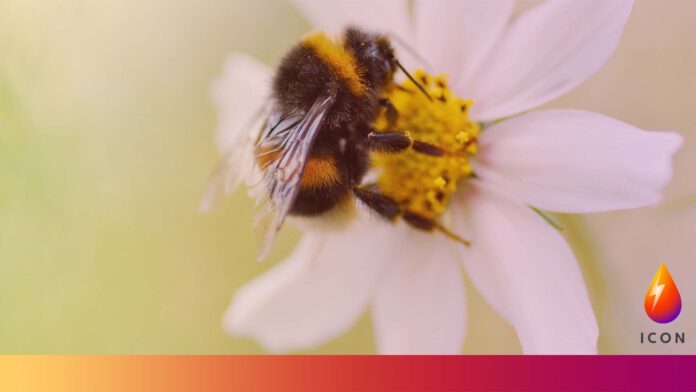
The public are being encouraged to count bees, butterflies and other pollinators as part of the latest drive to protect and increase these vital species.
The free ‘FIT Count’ phone app – supported by Department for Environment, Food & Rural Affairs (Defra) – will help track pollinator numbers and movements, providing crucial data that can be used to support pollinators in our natural environment. It could reveal previously unknown colonies of pollinators, where numbers are diminishing, or how populations are shifting in response to climate change.
It is part of a survey being co-ordinated by the UK Centre for Ecology & Hydrology. Their Flower-Insect Timed Count (FIT Count) survey asks people to spend 10 minutes a day collecting data on the number of insects that visit particular patches of flowers, including dandelion, buttercup and lavender.
Dr Claire Carvell, UK Centre for Ecology & Hydrology, commented: “FIT Counts are a great way for people to connect with nature. We would like to thank the hundreds of volunteers who have submitted more than 8,000 counts to the UK Pollinator Monitoring Scheme so far.
“This data is helping us build a unique picture of the changing patterns of pollinator visits to flowers across the gardens and countryside of the UK.”
Environment Minister Rebecca Pow made the call to action at this year’s Chelsea Flower Show, alongside the launch of the government’s new Pollinator Action Plan (PAP), which sets out how government, beekeepers, conservation groups, farmers, researches, industry and the public can work together to help pollinators in England thrive.
This will build on the progress of the Pollinator Monitoring Scheme, established through the National Pollinator Strategy launched in 2014.
Pollinators are an essential part of our environment and play a crucial role in food production – they contribute the equivalent of more than £500 million a year to UK agriculture and food production, by improving crop quality and quantity – and are also vital to our wider, natural ecosystems.
According to Defra, five simple actions everyone can take to help pollinators and make sure their populations are sustained include:
- Grow more flowers, shrubs and trees.
- Let your garden grow wild.
- Cut your grass less often.
- Don’t disturb insect nest and hibernation spots.
- Think carefully about whether to use pesticides.
More information about FIT Counts and the app is available on the Pollinator Monitoring Scheme website.